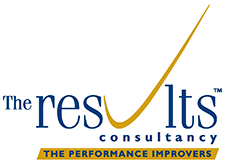 Colleagues should be a major source of work opportunities and referrals for most professionals. It makes commercial sense to blend complementary expertise and seek to offer clients broader support from within the firm. In reality, though, professionals are sometimes disappointed by cross referrals and the volumes of business leads that originate from within their firm.
Colleagues should be a major source of work opportunities and referrals for most professionals. It makes commercial sense to blend complementary expertise and seek to offer clients broader support from within the firm. In reality, though, professionals are sometimes disappointed by cross referrals and the volumes of business leads that originate from within their firm.
A silo-mentality can miss key cross referral opportunities
A common issue behind this is that individuals are often too focused on their own area of expertise and client work to spot opportunities for colleagues. It’s easy to get absorbed within your own silo and miss additional ways in which the firm can offer advice and support. It can also then come as a shock when the client turns to a competitor for expertise that could have easily been delivered by others in the firm.
Busy professionals find it hard to remain current and knowledgeable about what their colleagues do and the types of assignments they’re working on (and how this could benefit their own clients). In this article, we’ve shared some practical tips to help you fill this knowledge gap and ensure your colleagues fully grasp the benefits you bring.
Update colleagues on what you do
When seeking cross-selling referrals, a good starting point is to assume that your colleagues have little knowledge of what you do. To address this, spend time with them to:
- share information on what you are doing to help clients
- talk them through some of the recent assignments you’ve worked on
You can widen the benefit by bringing your respective teams together on a regular basis to brainstorm mutually beneficial opportunities. Alternatively just speak for 5-10 minutes at one of their team meetings to give a ‘snaphot’ of your current work and to stimulate their thinking on which of their clients may need similar help.
Reveal the signs that point to you
Your colleagues will find it easier to recommend you to a client, if you can alert them to the client issues and opportunities that point to your expertise. Guide them on what to look out for in their client work, and discuss natural extensions of their work which link to yours. In the short-term you may find it easier to concentrate on colleagues who have complementary expertise to your own or who specialise in the same industry sector.
Build credit with them
Colleagues most certainly are more likely to refer business opportunities to you if you’ve done the same for them. Think about which of your clients would benefit from a colleague’s insight or expertise. Consider those specialising in your client’s industry, or with specific relevant expertise eg employment, tax, intellectual property etc. Find out more about the cases or projects that your colleague has been working on and discuss ways in which you could introduce their help to specific clients of yours.
Become a safe pair of hands for cross referrals
Your colleagues are likely to have an element of trepidation when referring an opportunity to you. Their professional judgment and their client/contact relationship could be undermined if you underperform in any way. It is therefore paramount that you do an exceptional job – one that is delivered on time and within budget. You will also reassure your colleague if you can give them relevant and timely progress reports. If they are in the communication ‘loop’, they will feel more confident in your abilities. They may also be able to contribute valuable client insight to ensure you successfully overcome any delivery challenges.
Also be sure to let others in the firm know that you handle referrals well and have enhanced the relationship between the client and their main relationship partner. Celebrate and communicate successes, making sure the referring colleague’s reputation and credibility is enhanced. If appropriate, explore if this assignment or project can be publicised as a case study for the wider firm to use in marketing and pitch collateral.
Buddy Up
We’re seeing more instances of professionals working on opportunities together, as this helps them to present a more commercial and attractive offer to clients. Often these professionals work in complementary disciplines and/or specialise in the same industry sector. Another way in which you can join forces with a colleague is to look at organisations’ life cycle stages that you tend to be more involved with. It could be that you help more with issues relating to a company’s early years and your colleague supports those relating to later growth or even exit. If you focus on private clients, then there may be opportunities for a colleague given the client’s wider business interests, family or contacts.
And finally… polite, professional perseverance
Having one discussion with a colleague may help improve their knowledge of you in the short-term, but you need to remain on their ‘radar’ if you want to stimulate referrals over a long period of time. Maintain polite, professional perseverance and subtly keep them informed about the different cases/assignments you’ve successfully completed.
It is best to communicate in the form of examples and case studies to really engage their interest. Where you can, aim for periodic face-to-face time with them as this will enable them to ask questions, clarify aspects of your work and explore how it may benefit their clients. It also vitally important that you do a good job with any referral you receive. Remember that if you unsettle or damage the client relationship in the eyes of your referrer, their referrals to you will quickly dry up.
And if you feel you need to improve cross referrals in your firm or your team, do get in touch to discuss our coaching, training and e-learning support in this area.


